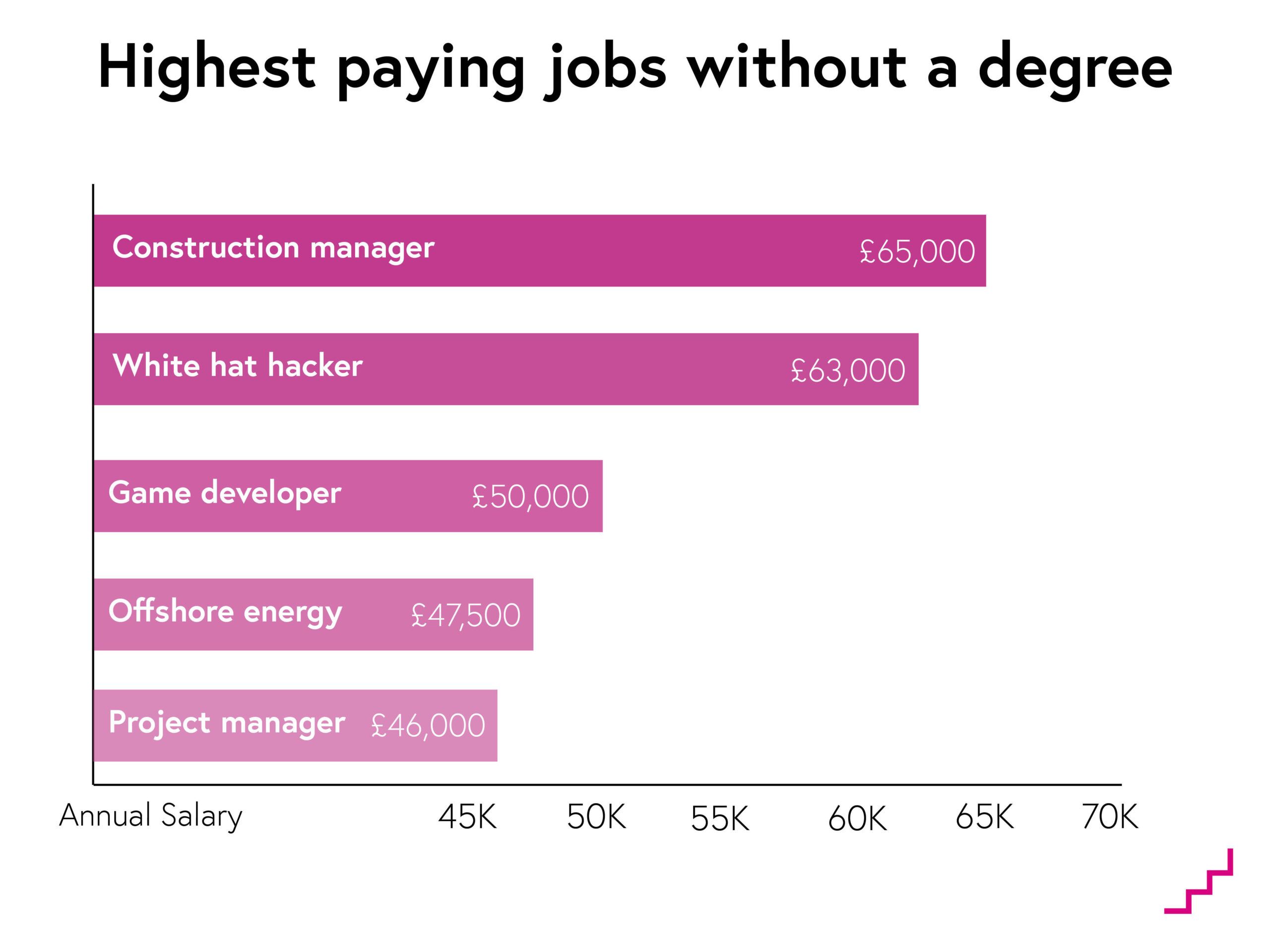What Makes a Job Worth $50 an Hour?
A job’s hourly wage is influenced by a combination of factors, including industry demand, skill requirements, and level of expertise. Jobs that require specialized skills, advanced education, or extensive experience tend to command higher hourly rates. For instance, jobs in the tech industry, such as software engineering and data science, often pay $50 an hour or more due to the high demand for skilled professionals and the complexity of the work involved.
Industry demand plays a significant role in determining hourly wages. Jobs in industries with high growth rates, such as healthcare and renewable energy, tend to offer higher hourly rates to attract and retain top talent. Additionally, jobs that require specialized certifications or licenses, such as law and medicine, often command higher hourly rates due to the significant investment of time and resources required to obtain these credentials.
The level of expertise required for a job also impacts its hourly wage. Jobs that require advanced degrees, such as master’s or doctoral degrees, tend to pay more than those that require only a bachelor’s degree. Furthermore, jobs that require specialized skills, such as programming languages or data analysis tools, often pay more than those that do not.
Examples of high-paying industries include finance, consulting, and technology. Jobs in these industries often require advanced degrees, specialized skills, and extensive experience, which can command hourly rates of $50 or more. For instance, investment bankers, management consultants, and software engineers are often among the highest-paid professionals, with hourly rates ranging from $50 to over $100 per hour.
Understanding the factors that contribute to a job’s hourly wage can help individuals identify high-paying career opportunities and make informed decisions about their education and training. By acquiring the skills and qualifications required for high-paying jobs, individuals can increase their earning potential and achieve financial stability.
How to Land a High-Paying Job: Essential Skills and Qualifications
To land a high-paying job, it’s essential to possess the right combination of skills and qualifications. While the specific requirements may vary depending on the industry and job title, there are certain key skills and qualifications that are commonly sought after by employers.
Education is a critical factor in securing a high-paying job. Many jobs that pay $50 an hour or more require a bachelor’s degree or higher. In some cases, a master’s degree or doctoral degree may be necessary. For example, jobs in fields like law, medicine, and engineering often require advanced degrees.
In addition to formal education, experience is also a vital factor in landing a high-paying job. Many employers require candidates to have several years of experience in their field, and some may even require specific certifications or licenses. For instance, jobs in the tech industry may require certifications in programming languages or software development.
Certifications and licenses can also be beneficial in securing a high-paying job. These credentials demonstrate expertise and knowledge in a particular area, and can be a major differentiator in a competitive job market. Examples of certifications that can be valuable in high-paying jobs include ITIL certification for IT professionals, PMP certification for project managers, and CPA certification for accountants.
Soft skills are also essential for success in high-paying jobs. Employers often look for candidates with strong communication, teamwork, and problem-solving skills. Additionally, adaptability, creativity, and leadership skills can be highly valued in high-paying jobs.
To acquire the skills and qualifications needed for high-paying jobs, individuals can pursue various strategies. These may include:
- Pursuing higher education or certifications
- Gaining relevant work experience through internships or entry-level positions
- Developing soft skills through training or mentorship programs
- Staying up-to-date with industry trends and developments through continuous learning
By focusing on acquiring the essential skills and qualifications, individuals can increase their chances of landing a high-paying job and achieving financial stability. Remember, jobs that make 50 dollars an hour or more often require a combination of education, experience, and certifications, so it’s essential to be strategic in your career development.
Top Careers That Pay $50 an Hour or More
There are several high-paying careers that offer hourly wages of $50 or more. Here are some examples of jobs that meet this threshold, along with their job descriptions, salary ranges, and growth prospects:
Data Scientist: Data scientists collect and analyze complex data to gain insights and make informed decisions. They typically require a bachelor’s degree in computer science, statistics, or mathematics, and can earn an average hourly wage of $60-$80.
Product Manager: Product managers oversee the development and launch of products, ensuring they meet customer needs and are profitable. They typically require a bachelor’s degree in business, marketing, or engineering, and can earn an average hourly wage of $55-$75.
Software Engineer: Software engineers design, develop, and test software programs. They typically require a bachelor’s degree in computer science or engineering, and can earn an average hourly wage of $50-$70.
Physician Assistant: Physician assistants work under the supervision of physicians to provide medical care to patients. They typically require a master’s degree in physician assistant studies, and can earn an average hourly wage of $55-$75.
Air Traffic Controller: Air traffic controllers coordinate the movement of aircraft to ensure safe distances and efficient flight paths. They typically require a bachelor’s degree in air traffic control or a related field, and can earn an average hourly wage of $50-$70.
Pharmacist: Pharmacists dispense medications and advise patients on their use. They typically require a doctoral degree in pharmacy, and can earn an average hourly wage of $55-$75.
Dentist: Dentists diagnose and treat dental problems, such as cavities and gum disease. They typically require a doctoral degree in dentistry, and can earn an average hourly wage of $60-$80.
Lawyer: Lawyers advise clients on legal matters and represent them in court. They typically require a doctoral degree in law, and can earn an average hourly wage of $55-$75.
These careers offer high hourly wages due to factors such as industry demand, skill requirements, and level of expertise. By pursuing these careers, individuals can increase their earning potential and achieve financial stability.
Remember, jobs that make 50 dollars an hour or more often require a combination of education, experience, and certifications. By focusing on acquiring the necessary skills and qualifications, individuals can unlock their earning potential and achieve success in their chosen careers.
The Benefits of High-Paying Jobs: More Than Just a Salary
While a high salary is a significant benefit of high-paying jobs, it’s not the only advantage. Many high-paying careers offer a range of benefits that can enhance an individual’s overall quality of life and provide a sense of fulfillment and purpose.
One of the most significant benefits of high-paying jobs is job security. Many high-paying careers are in industries that are less likely to experience layoffs or downsizing, providing employees with a sense of stability and security. Additionally, high-paying jobs often come with comprehensive benefits packages, including health insurance, retirement plans, and paid time off.
High-paying jobs also offer opportunities for advancement and professional growth. Many high-paying careers require specialized skills and knowledge, and employers are often willing to invest in their employees’ ongoing education and training. This can lead to opportunities for advancement and increased earning potential over time.
Another benefit of high-paying jobs is access to exclusive benefits and perks. Many high-paying employers offer benefits such as flexible work arrangements, on-site fitness centers, and employee recognition programs. These benefits can enhance an individual’s overall quality of life and provide a sense of satisfaction and fulfillment.
High-paying jobs can also provide a sense of purpose and fulfillment. Many high-paying careers involve working on complex and challenging projects, which can be highly rewarding for individuals who enjoy problem-solving and critical thinking. Additionally, many high-paying jobs involve working with a talented and motivated team, which can provide a sense of camaraderie and shared purpose.
Examples of high-paying jobs that offer these benefits include:
- Data scientist: Data scientists work on complex data analysis projects and often have access to comprehensive benefits packages and opportunities for advancement.
- Product manager: Product managers work on high-profile product launches and often have access to exclusive benefits and perks, such as flexible work arrangements and on-site fitness centers.
- Software engineer: Software engineers work on complex software development projects and often have access to comprehensive benefits packages and opportunities for advancement.
Overall, high-paying jobs offer a range of benefits that can enhance an individual’s overall quality of life and provide a sense of fulfillment and purpose. While a high salary is certainly a significant advantage, it’s not the only benefit of high-paying jobs. By considering the range of benefits offered by high-paying careers, individuals can make informed decisions about their career choices and pursue jobs that align with their skills, interests, and values.
Jobs that make 50 dollars an hour or more often offer a range of benefits that can enhance an individual’s overall quality of life and provide a sense of fulfillment and purpose. By pursuing these careers, individuals can unlock their earning potential and achieve financial stability, while also enjoying a range of benefits that can enhance their overall well-being.
Industries with the Highest Demand for High-Paying Jobs
Certain industries are experiencing high demand for skilled professionals, leading to a surge in high-paying job opportunities. These industries are driven by factors such as technological advancements, changing consumer behaviors, and shifting economic landscapes.
Tech Industry: The tech industry is one of the fastest-growing sectors, with a high demand for skilled professionals in areas such as software development, data science, and cybersecurity. Jobs in this industry can pay upwards of $50 an hour, with some positions reaching salaries of over $100,000 per year.
Finance Industry: The finance industry is another sector with a high demand for skilled professionals, particularly in areas such as investment banking, financial analysis, and portfolio management. Jobs in this industry can pay upwards of $50 an hour, with some positions reaching salaries of over $200,000 per year.
Healthcare Industry: The healthcare industry is experiencing a high demand for skilled professionals, particularly in areas such as nursing, medical research, and healthcare management. Jobs in this industry can pay upwards of $50 an hour, with some positions reaching salaries of over $150,000 per year.
These industries are driving the demand for high-paying jobs due to factors such as:
- Technological advancements: The rapid pace of technological change is creating a high demand for skilled professionals who can develop and implement new technologies.
- Changing consumer behaviors: Shifts in consumer behavior are driving the demand for skilled professionals who can analyze and respond to these changes.
- Shifting economic landscapes: Changes in the economic landscape are creating a high demand for skilled professionals who can navigate and adapt to these changes.
Jobs that make 50 dollars an hour or more are often found in these industries, and individuals who possess the necessary skills and qualifications can capitalize on these opportunities to advance their careers and increase their earning potential.
Some examples of high-paying jobs in these industries include:
- Software engineer: $60-$100 per hour
- Investment banker: $80-$150 per hour
- Nurse practitioner: $50-$90 per hour
By understanding the industries with the highest demand for high-paying jobs, individuals can make informed decisions about their career choices and pursue opportunities that align with their skills and interests.
How to Negotiate a Higher Salary: Tips and Strategies
Negotiating a higher salary can be a challenging task, but it’s essential to ensure that you’re fairly compensated for your skills and experience. Here are some tips and strategies to help you negotiate a higher salary:
Research Market Rates: Before entering into salary negotiations, research the market rates for your position and industry. This will give you a solid foundation for your negotiation and help you make a strong case for why you deserve a higher salary.
Prepare a Solid Case: Make a list of your skills, qualifications, and achievements, and be prepared to explain how they align with the job requirements and company goals. This will help you demonstrate your value to the employer and make a strong case for a higher salary.
Know Your Worth: Be confident in your worth and the value you bring to the company. Avoid apologetic or hesitant language, and instead focus on your strengths and achievements.
Be Flexible: Be open to negotiation and willing to consider alternative compensation packages. This might include additional benefits, a signing bonus, or a performance-based raise.
Don’t Be Afraid to Walk Away: If the negotiation doesn’t go in your favor, be prepared to walk away from the job offer. This shows that you’re willing to stand up for your worth and may cause the employer to reconsider their offer.
Some examples of high-paying jobs that may require salary negotiation include:
- Data scientist: $60-$100 per hour
- Product manager: $80-$150 per hour
- Software engineer: $50-$90 per hour
Jobs that make 50 dollars an hour or more often require strong negotiation skills to ensure that you’re fairly compensated for your skills and experience. By following these tips and strategies, you can effectively negotiate a higher salary and unlock your earning potential.
Remember, negotiation is a conversation, not a confrontation. Be confident, prepared, and flexible, and you’ll be well on your way to securing a higher salary.
Common Myths About High-Paying Jobs: Separating Fact from Fiction
There are several common myths about high-paying jobs that can discourage individuals from pursuing these careers. However, by separating fact from fiction, individuals can make informed decisions about their career choices and unlock their earning potential.
Myth 1: High-paying jobs require extensive education. While some high-paying jobs may require advanced degrees, many others can be entered into with a bachelor’s degree or even an associate’s degree. For example, jobs in the tech industry, such as software engineering and data science, often require a bachelor’s degree in computer science or a related field.
Myth 2: High-paying jobs are only available in certain industries. While certain industries, such as finance and healthcare, may have a high concentration of high-paying jobs, there are many other industries that also offer lucrative career opportunities. For example, jobs in the renewable energy industry, such as solar and wind energy engineering, can be highly paid and in high demand.
Myth 3: High-paying jobs are only for young people. While some high-paying jobs may require a high level of physical fitness or stamina, many others can be pursued by individuals of all ages. For example, jobs in the consulting industry, such as management consulting and strategy consulting, often require a high level of experience and expertise, which can be acquired over time.
Myth 4: High-paying jobs are only for individuals with a high level of technical expertise. While some high-paying jobs may require a high level of technical expertise, many others require strong communication, problem-solving, and leadership skills. For example, jobs in the sales industry, such as sales management and business development, often require strong interpersonal and communication skills.
By separating fact from fiction, individuals can gain a more accurate understanding of the opportunities and challenges associated with high-paying jobs. Jobs that make 50 dollars an hour or more often require a combination of education, experience, and skills, but they can also offer a high level of job satisfaction and financial reward.
Some examples of high-paying jobs that debunk these myths include:
- Software engineer: $60-$100 per hour
- Renewable energy engineer: $50-$90 per hour
- Management consultant: $80-$150 per hour
By pursuing high-paying careers that align with their skills and interests, individuals can unlock their earning potential and achieve financial stability.
Conclusion: Unlocking Your Earning Potential
Pursuing a high-paying career can be a life-changing decision, offering not only financial stability but also opportunities for growth and advancement. By understanding the factors that contribute to a job’s high hourly wage, acquiring the necessary skills and qualifications, and exploring in-demand industries, individuals can unlock their earning potential and secure a brighter financial future. Whether it’s a career in tech, finance, or healthcare, there are numerous jobs that make $50 dollars an hour or more, offering a sense of security and freedom that comes with a higher salary.
As the job market continues to evolve, it’s essential to stay adaptable and committed to continuous learning. By doing so, individuals can stay ahead of the curve and position themselves for success in high-paying careers. Remember, landing a high-paying job requires more than just a degree or certification – it demands a combination of skills, experience, and a willingness to learn and grow.
As you embark on your career journey, keep in mind that high-paying jobs offer more than just a salary. They provide opportunities for advancement, access to exclusive benefits and perks, and a sense of fulfillment that comes with working in a field you’re passionate about. By exploring the top careers that pay $50 an hour or more, you can find a job that aligns with your skills, interests, and values, and sets you up for long-term success.
In conclusion, unlocking your earning potential requires a combination of hard work, dedication, and a willingness to learn and grow. By following the tips and strategies outlined in this article, you can increase your chances of landing a high-paying job and securing a brighter financial future. Remember to stay focused, adaptable, and committed to your goals, and you’ll be well on your way to achieving success in a high-paying career.







